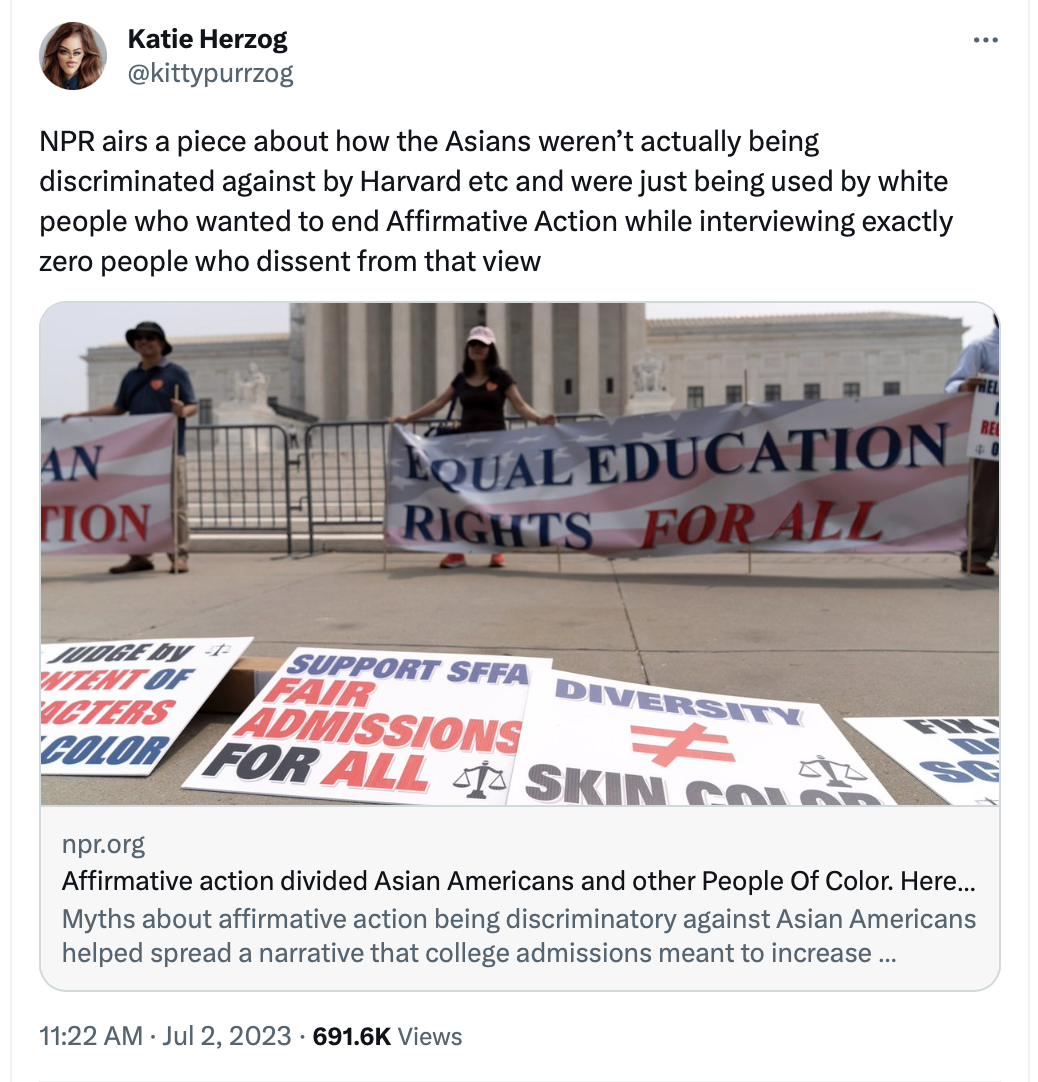MIT Advises How to Write a Winning Diversity Statement
At Why Evolution is True, Jerry Coyne posts on how to please the DEI department by writing an acceptable diversity statement.
The MIT site says this:
A diversity statement alone is unlikely to get you an interview or a job offer, but a well-written diversity statement may enable you to stand out among a large pool of qualified candidates.. . . in reality, in some places like Berkeley, if your diversity statement isn’t up to muster you have no chance of getting a job, no matter how good your academic qualifications are (see here and here). And since you have to talk about efforts you have made in the past to increase diversity, as well as your philosophy of diversity, you have to start doing social-justice work well before you intend to apply for jobs. Woe to those students who have immersed themselves wholly in quantum mechanics or classical literature out of the love of the field and of knowledge. Without a track record in promoting diversity, as well as a philosophy of diversity, those people are doomed.
I don’t of course object to universities encouraging diversity efforts as a way to “broaden” a candidate, but there are many ways to be broad besides fighting for equity of races and genders. These include doing general outreach to high schools, writing popular books and articles on your field, doing an internship at a newspaper or other organization,, and so on. But those don’t count nearly as much as showing your history of fighting for equity. And is this attempt to turn universities from places of learning into instruments of specific types of social justice that bothers me. As Stanley Fish said (it’s a book title): “Save the world on your own time.”
And, in the end, DEI statements may be illegal. As my colleague Brian Leiter (a law school prof) pointed out, such required statements, if used to cull candidates, may constitute illegal “viewpoint discrimination”. As he notes:
I recommend that those applying for jobs in the University of California system say only this in the diversity statement: “I decline to supply this statement which constitutes illegal viewpoint discrimination in violation of my constitutional rights.” There are already lawyers gearing up to bring legal challenges; I hope they act soon. If you have been rejected from a University of California search, and suspect it was on grounds of insufficient ideological purity about “diversity,” please get in touch with me. I can connect you with one public interest legal organization looking for plaintiffs.
FIRE (Foundation for Individual Rights and Expression) is also concerned about Diversity Statements. Here is an excerpt from FIRE:
FIRE is concerned by the proliferation of college and university policies requiring faculty applicants or current faculty to demonstrate their commitment to “diversity, equity, and inclusion,” often through a written statement that factors into hiring, reappointment, evaluation, promotion, or tenure decisions. In our newly released Q&A and full Statement on the Use of Diversity, Equity, and Inclusion Criteria in Faculty Hiring and Evaluation, we explain how DEI statement policies can too easily function as ideological litmus tests that threaten employment or advancement opportunities for faculty who dissent from prevailing thought on DEI.
Over the past few years, FIRE has heard from countless faculty members concerned that their university’s DEI statement policy violates the First Amendment, academic freedom principles, or both. Numerous complaints have prompted FIRE’s intervention.
Our statement provides guidance to universities to ensure they respect faculty members’ expressive freedom when seeking to advance DEI.

